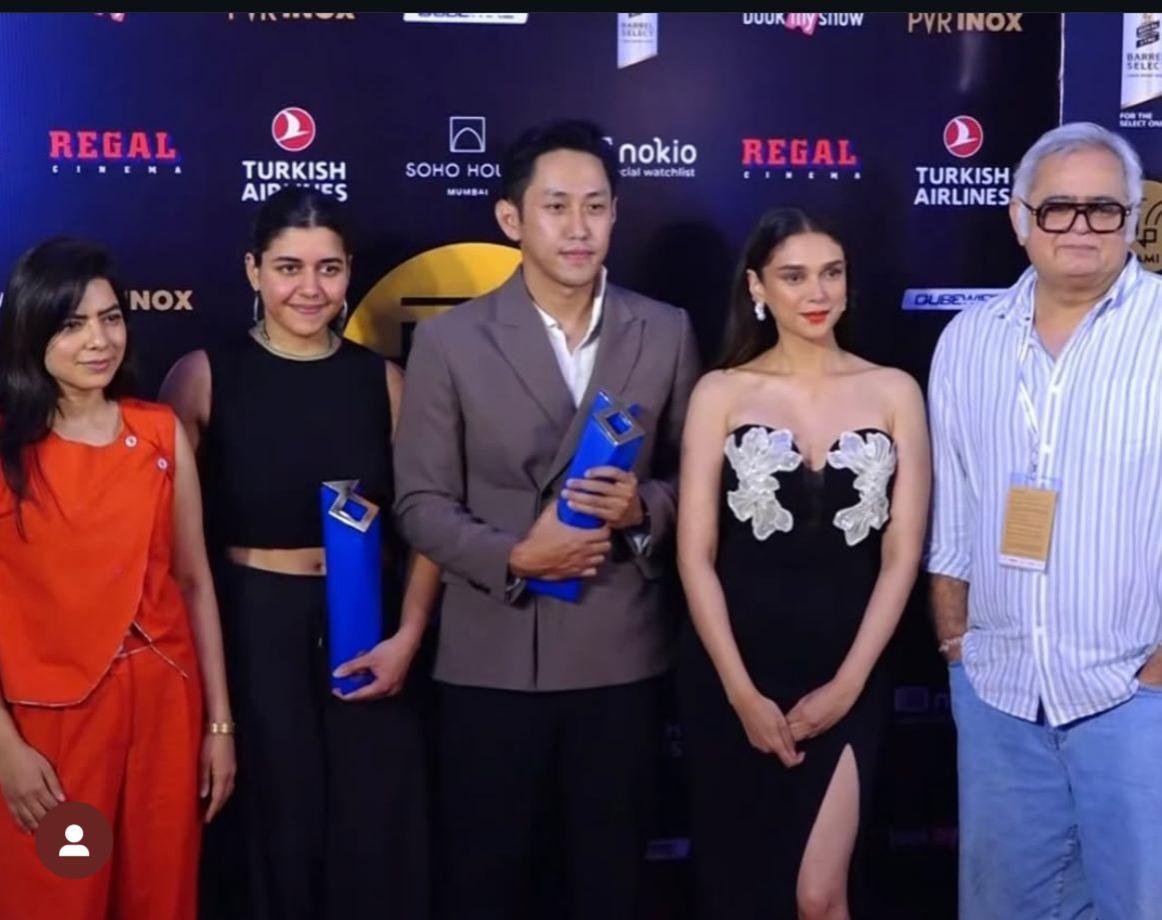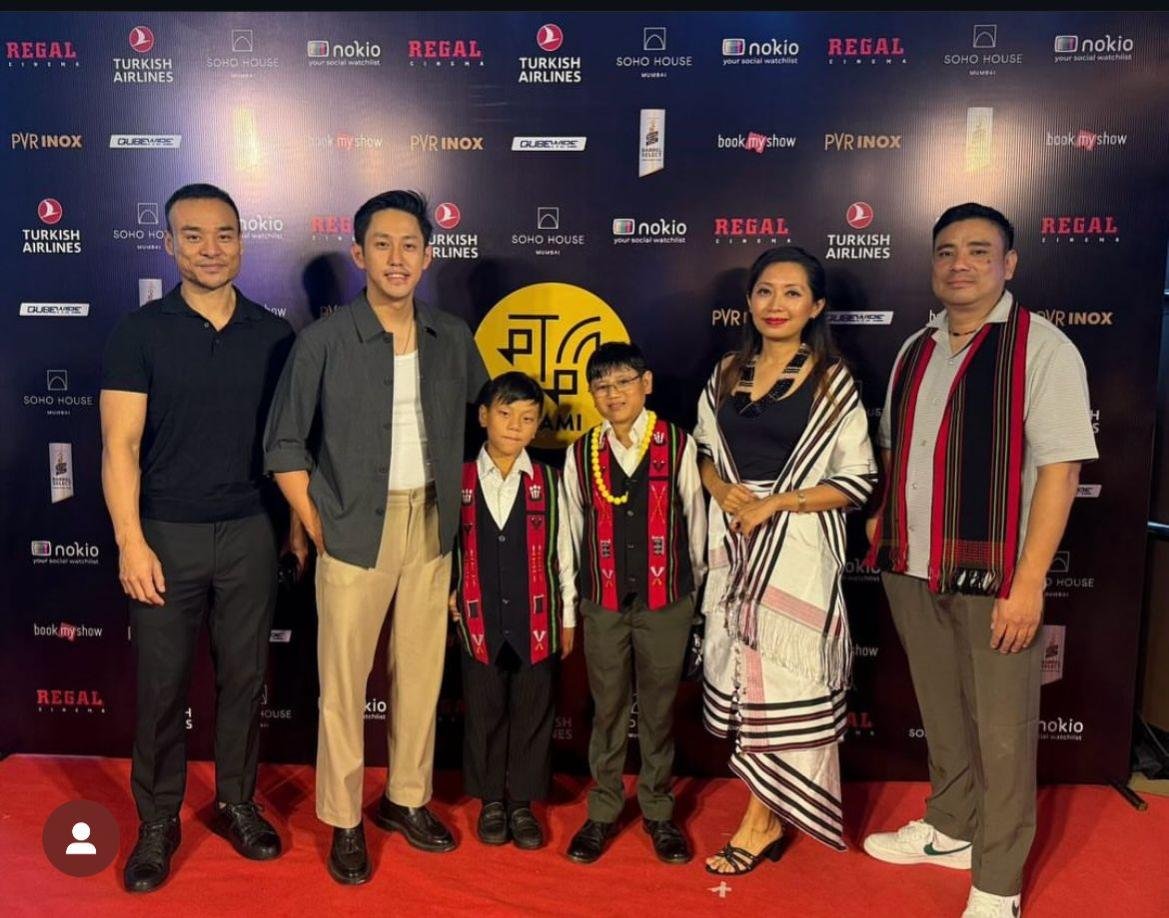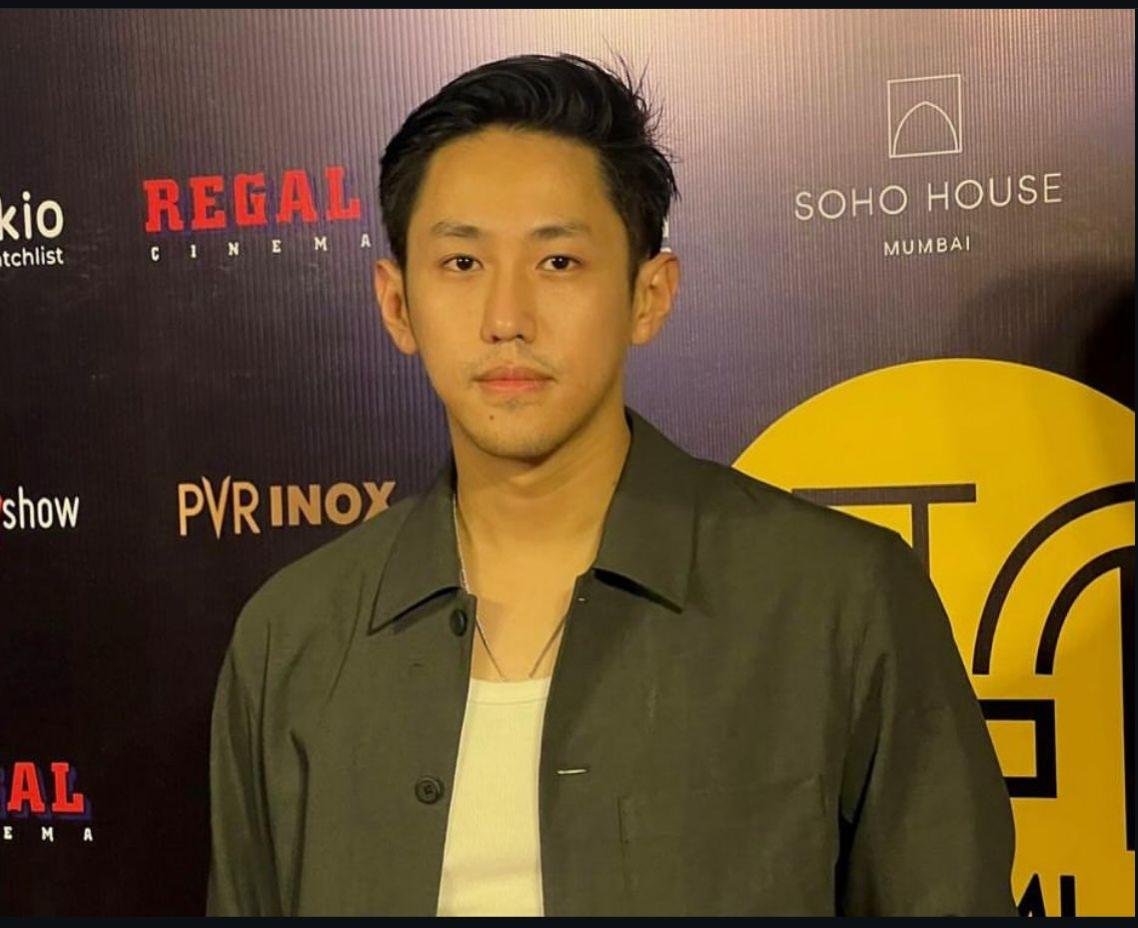“What first drew me toward filmmaking was my deep love for storytelling. I was an avid storyteller from a young age, and later, I realised that filmmaking is storytelling in its purest form,” shares 29 years old writer and film director Theja Rio.
An award winning filmmaker best known for his short film ‘Angh’ which won the Special Jury Award at the Clermont-Ferrand International Short Film Festival in 2021, Rio notes that the success he enjoy today Is the result of a decade of consistent focus and dedication.
“For the past ten years, I’ve been constantly crafting screenplay after screenplay, driven by a genuine love for storytelling. Along the way, as I’ve continued writing and directing, I’ve also uncovered new insights about myself— it has been a journey of creative growth as much as personal discovery,” says Rio in an exclusive Interview with Nagaland Tribune. The young Naga film Director also acknowledges Nancy Nisa Beso, who has produced most of his films, as both a mentor and collaborator.
In this exclusive interview, Rio shares insights on his new projects and the creative process of filmmaking.
NT: Please tell us about “Ade[ on a Sunday]” and what it means to you.
Ade (On A Sunday) is a deeply personal film—a love letter to the world I knew growing up in the 2000s. The story follows Ade, a boy I knew in my childhood, as he sneaks away from Sunday school one day and unexpectedly encounters the adult world for the first time. Through this film, I’ve tried to capture and recreate the vivid nostalgia of those memories.
Can you discuss some of your other projects and what they entail?
I’ve been fortunate to have made a number of short films both in India and abroad. Two of my notable works include Angh, a short I wrote and directed in 2019, which screened at some of the world’s leading Oscar-qualifying festivals, including Clermont-Ferrand and Palm Springs International Film Festival. My most recent film, Remains, is a post-colonial horror shot in the UK. It premiered at the BAFTA and BIFA-qualifying Cambridge International Film Festival and will soon have its Polish premiere at Cameraimage, widely regarded as the most prestigious cinematography festival in the world.
NT: What factors Influence your choice of projects to direct?
TR: I usually prefer directing films I’ve written myself, as I’m drawn to characters, themes, and worlds that resonate deeply with me. Having that personal connection to the material is essential when choosing the stories I want to bring to life.

NT: How would you describe your creative process when developing a new film?
TR: Each film comes together through its own unique process, but my priority always remains the same: crafting compelling characters with engaging, memorable experiences.
Download Nagaland Tribune app on Google Play

NT: Which of your films do you feel most proud of and why?
TR: I’d say Ade (On A Sunday) holds a special place for me because it’s deeply personal and never fails to make me smile. And Remains might be another favorite, as horror is a genre I’ve always wanted to explore. My cinematographer, Natdanai Naksuwarn, crafted each shot to look like an oil painting, and his work in the film is simply jaw dropping.
NT: How do you handle criticism or negative reviews?
TR: I’ve developed a thick skin when it comes to negative comments, both personally and professionally. Initially, handling criticism—especially regarding my creative work—was challenging. Film school exposed me to a lot of tough yet constructive feedback, which taught me invaluable lessons. Now, I find I’m fairly indifferent to criticism.
NT: How do you approach collaborations with writers, producers, and actors?
TR: Since I write my own material, I haven’t often needed to collaborate with writers. However, when working with co-writers, producers, actors, or anyone else, it’s essential that they believe in the work and that we share a unified vision for the project.
NT: How do you think the film industry has changed since you started your career?
TR: I don’t have much to reflect on yet, as my career is still in its nascent stages, making it hard to pinpoint any major transitions. However, the rise of OTT platforms has definitely become more significant and widespread.

NT: How has winning awards impacted your career?
TR: I’m not sure yet. Winning an award might put you on the radar of key industry figures, and I’ve certainly noticed more traction and attention since receiving accolades. But I’m still uncertain about the long-term impact.
NT: What does receiving an award mean to you personally and professionally?
TR: Receiving an award is both inspiring and humbling; it means being acknowledged and appreciated, especially when competing alongside remarkable films and filmmakers. Coming from an underrepresented region like ours makes the recognition even more meaningful.
NT: What upcoming projects are you excited about? And are there any genres you specifically like to tackle?
TR: I’m currently in pre-production for my first feature film, an extended version of my short film Angh. It’s a highly ambitious project, and we’re aiming to start shooting in the final weeks of February 2025.
NT: Who were your biggest influences in filmmaking?
TR: I’ve gone through various phases of inspiration from different films and filmmakers over the years. At this stage, my work is primarily influenced by filmmakers like Abbas Kiarostami and Paul Thomas Anderson.
NT: How do you define success as a director?
TR: Without sounding pretentious and ostentatious, I truly believe that being able to make a film is a tremendous privilege. Having the opportunity to tell your stories and have an audience willing to watch and listen is, to me, the ultimate success.

